Catalogue 2025
Below, browse the 2025 Rencontres Internationales catalogue, or search the archives of the works presented since 2004. New video clips are routinely posted and the images and text are regularly updated.
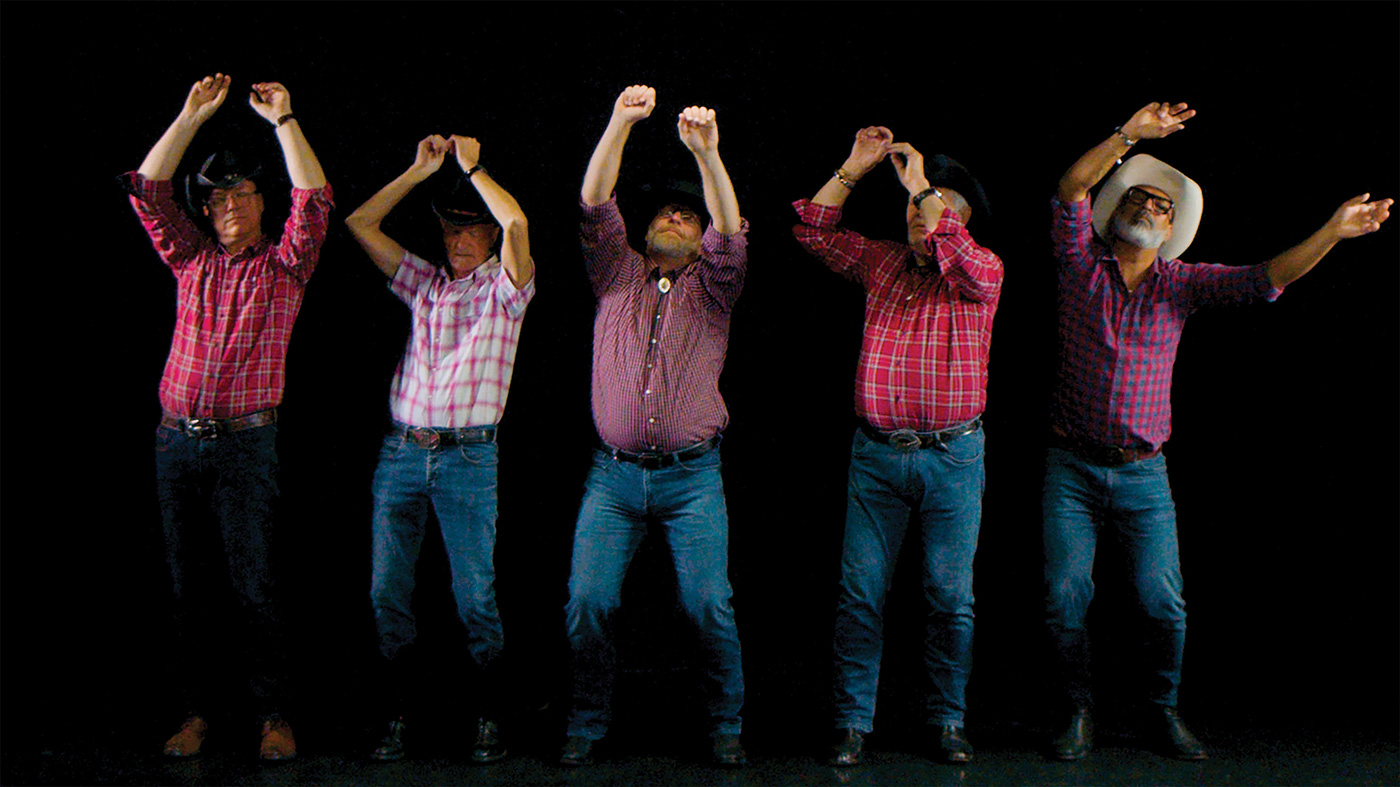

Kim Richard Adler Mejdahl
Glory 1
Experimental video | 4k | color | 2:0 | Denmark | 2024
Members of the gay linedance club ‘Outliners’ dance in a black room. ‘Glory 1’ is a video artwork conceived by Danish multidisciplinary artist Kim Richard Adler Mejdahl. The dreamy scenario presents a symbolic antidote to patriarchy and its destructive understandings of masculinity. In the mind of the artist, ‘Glory 1’ is a symbol of protest. Cowboys dancing together instead of shooting each other down is a subversive act against conventional understandings of man. It is a symbolic gesture of reversing the macho ideal within patriarchy, that weighs down and dictates the life of men.
Kim Richard Adler Mejdahl graduated from the Royal Danish Academy of Fine Arts in 2019. Slaptstick humour and gothic horror meet up in Mejdahl's multifaceted work that often has its starting point in the artist's personal life story. Be it music album releases, film productions or large solo exhibition projects, Mejdahl's practice explore the topics of trauma healing, our relationship to nature, spirituality, and gender identity. His video works have reached international audiences with screenings across Europe and Asia. Under the alias Kim Kim, Mejdahl has made numerous live performances and released music albums. Within few years Mejdahl has collaborated with a wide range of different institutions, counting Kunsthal Charlottenborg, Roskilde Festival, Danish theme park BonBon-Land, Theater Sort/Hvid, and most recently KØN - Gender Museum Denmark. In 2025 Mejdahl was awarded the three-year working grant by The Danish Arts Foundation. His work is part of The National Gallery's collection in Denmark.
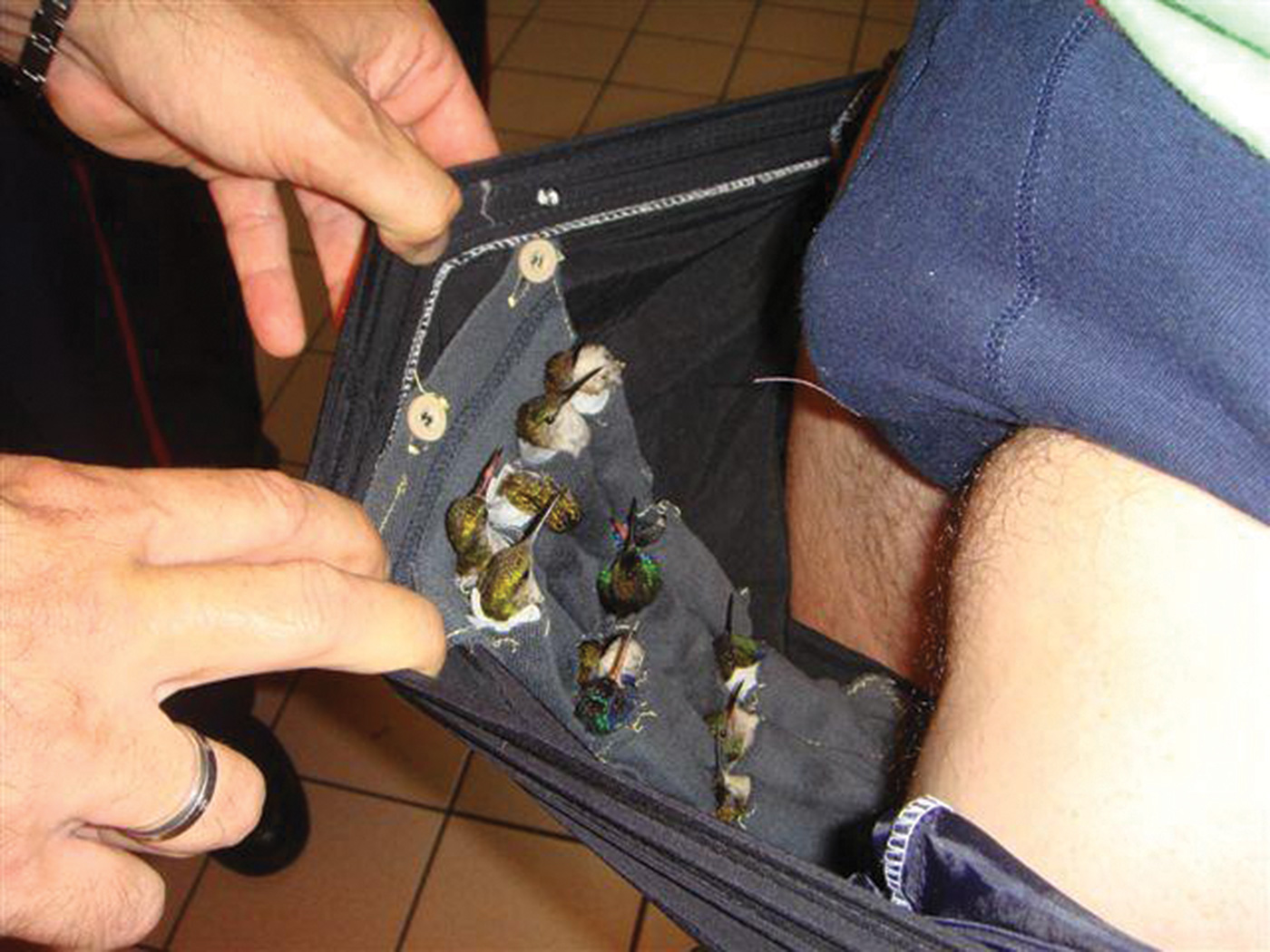
Dina Mimi
The Melancholy of this useless afternoon II
Experimental film | mov | black and white | 13:0 | Palestine | 2022
The Melancholy of this Useless Afternoon, chapter 2 (2023, 11:25) explores the shared gestures between the fugitive and the smuggler, and their relationship to being seen. The melancholy of this useless afternoon researches the links between the fugitive and the smuggler, their shared gestures and relationships to being seen. By escape and flight, risking capture or death, the fugitive works to keep themself hidden. The smuggler, however, moves with stealth, using gestures to hide things, often close to their body.
Dina Mimi is a Palestinian visual artist and filmmaker who is based between Palestine and the Netherlands. Mimi works with experimental filmmaking and lecture performances that research the question of how and when bodies become sites of resistance. This question finds its material interest in moving images, especially found footage, that is discarded and therefore deemed invaluable. Understanding editing as a playground, Mimi plays with opacity in moving images by seeking to brush up against footage which desires to be ungraspable or is in the act of vanishing. This is a continuous attempt at non-linear narration as a way of disfiguring one’s.
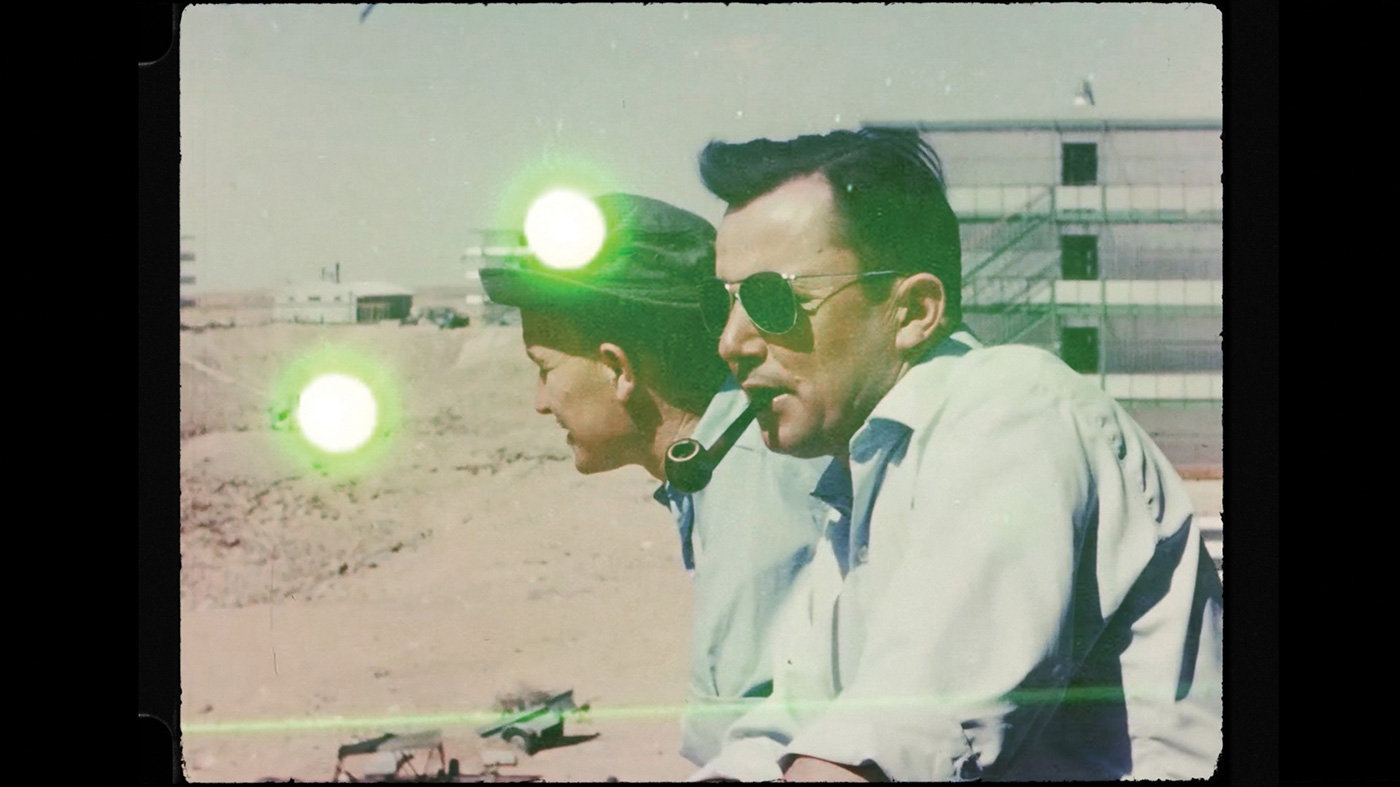
Marcel Mrejen
Larry
Video | 4k | color | 10:0 | Algeria | 2024
Set against silent 16mm footage filmed by a French soldier in occupied Algeria, the film stages an encounter between colonial memory and the soundscape of contemporary warfare. As present-day militarism infiltrates the archive, time fractures and the images begin to echo with conflicts past and future. What emerges is a haunting meditation on the ways colonial violence continues to reverberate through today’s military imaginaries.
Marcel Mrejen (FR/DZ) born in 1994 (Paris, FR) is a visual artist and filmmaker exploring the articulation of technology within living and economic metabolisms. The form of his work spans various time-based media — installations, filmmaking, sound, and machine-learning. He graduated from the Gerrit Rietveld Academie in 2018, before being a resident of Le Fresnoy - Studio national des arts contemporains from 2021 to 2023. His work has been exhibited/screened in various cultural institutions, including the Stedelijk Museum (Amsterdam), the Institute of Contemporary Arts (London), or the Eye Filmmuseum (Amsterdam). Parallel to his artistic practice, he co-curated the first edition of REFRESH: Future-Proof in 2021. His debut film Memories of an Unborn Sun was awarded Best Short Film at Visions du Réel in 2024 and was screened and won awards in numerous festivals around the world. In 2025, it was awarded the Scam Prize for Best Experimental Film. In collaboration with Eliott Déchamboux, his book: L’Europe c’est Deutshland quand tu rate laba tu est foutue mon frère, le reste c’est du fouma-fouma, was published by Jungle Books in 2019.
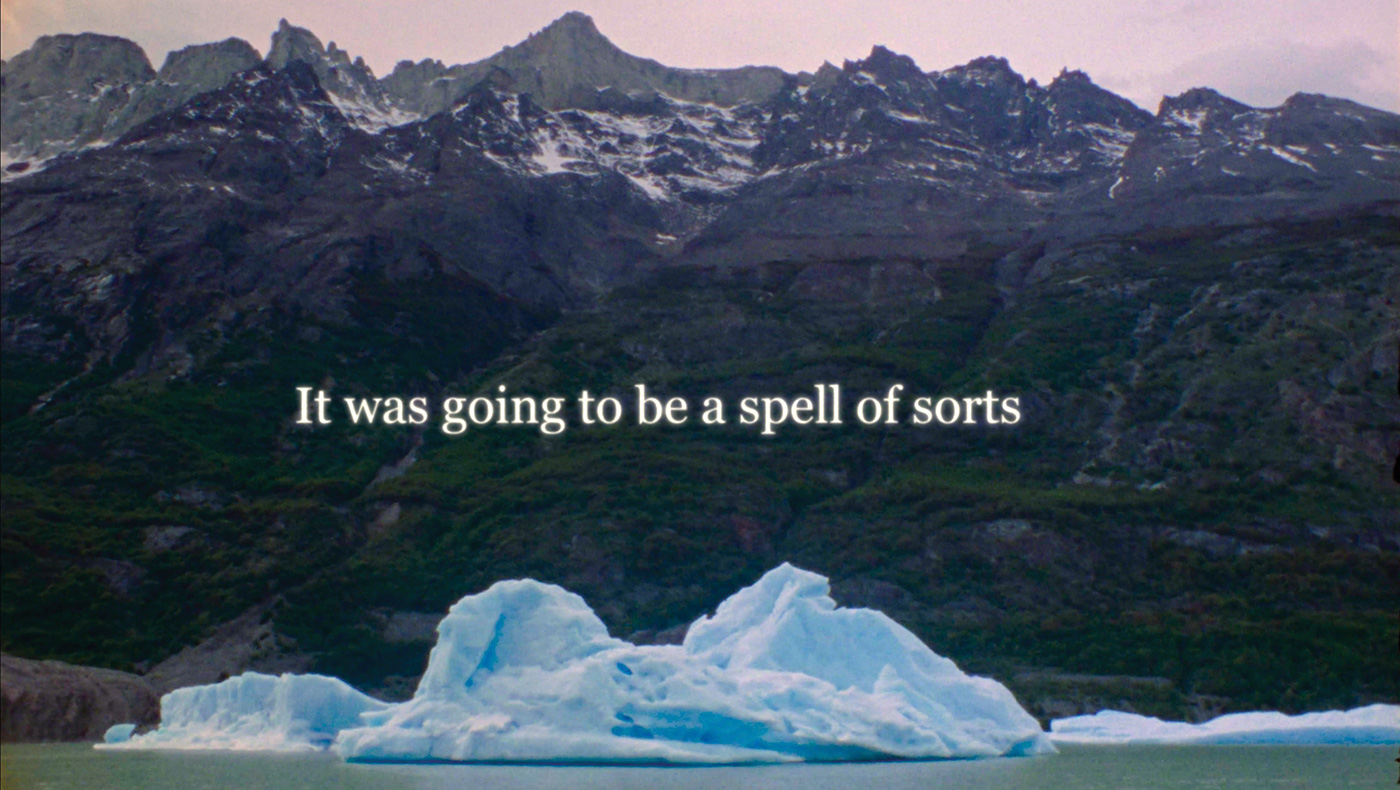
Arjuna Neuman
Promise
Experimental doc. | 16mm | color | 2:30 | Canada, Germany | 2025
What is the possibility, barbarism or folly of making art, poetry, film while a genocide is happening in front of our eyes?
Arjuna Neuman is an artist and writer. He has presented solo mid-career surveys at MACBA in Barcelona, Munch Museum in Oslo, and Belkin Gallery in Vancouver and forthcoming at Kunsthalle Bern. He has presented solo exhibitions at Kunsthalle Vienna; CCA Glasgow; Showroom Gallery, London; TPW Gallery, Toronto; Whitechapel Gallery, London; Istanbul Modern, Turkey; MAAT, Portugal amongst many others. He has participated in the Berlin Biennial, Sharjah Biennial, Bergen Assembly, the 56th Venice Biennial, Qalandia Biennial, Ural Industrial Biennial, Hacer Noche in Mexico and many other large group exhibitions. He has been included in film festivals such as Berlinale, Images Festival, Docsliboa, Third Horizon. In 2024 he won the Artist Moving Image prize at Les Rencontre International Festival; in 2024 he was a fellow at Villa Aurora and in 2022 a fellow at the Flaherty Seminar. His work is kept in the Belkin Collection, Kunsthalle Bern Collectors Circle; IAC Lyon and Platform UK. He has a forthcoming monograph published with Archive Books. As a writer, he has published essays in Relief Press, Into the Pines Press, The Journal for New Writing, VIA Magazine, Concord, Art Voices, Flaunt, LEAP, Hearings and e-flux. He is the founder of Archive of Belonging, a platform and resource list supporting migrants and refugees.
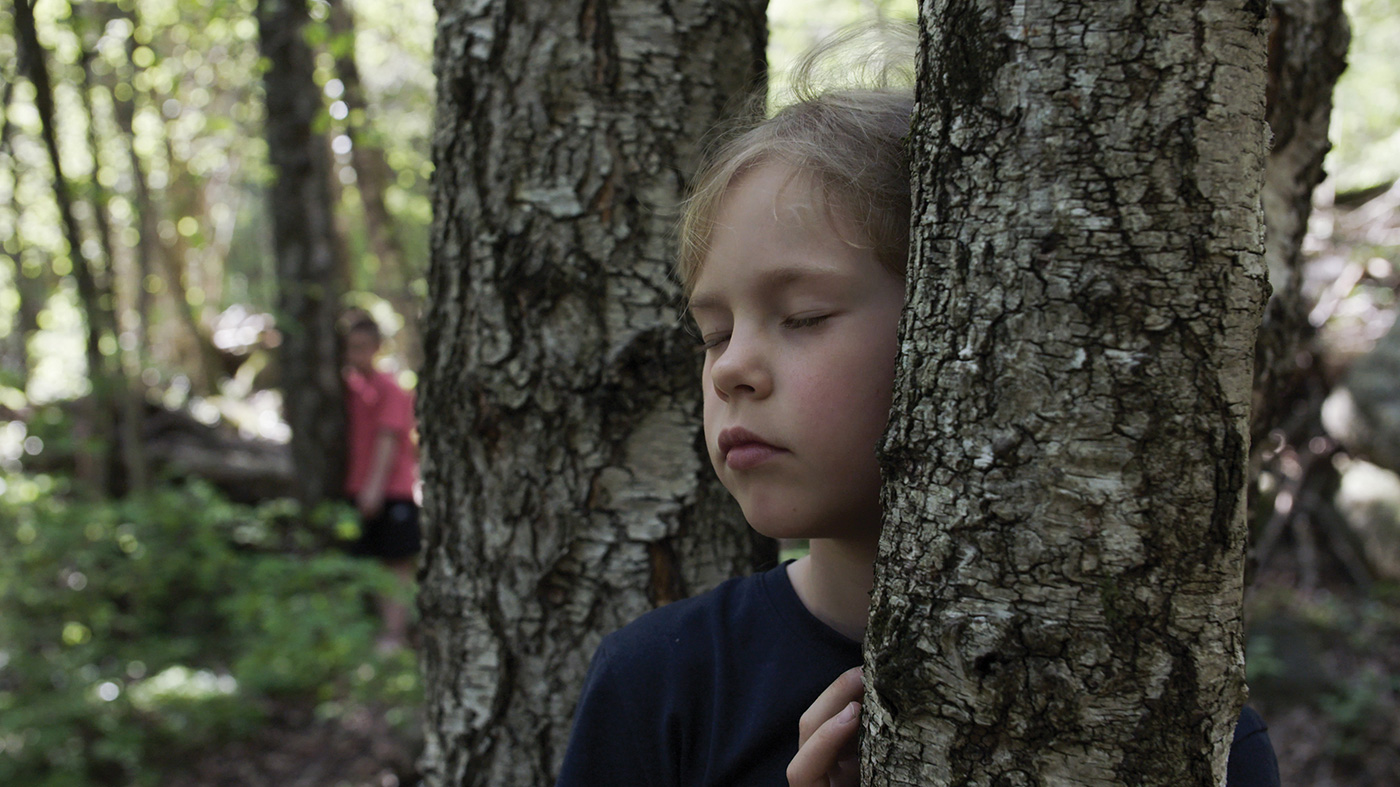
Uriel Orlow
Forest Futures
Experimental film | 4k | color | 28:0 | Switzerland, Italy | 2024
Forest Futures is a poetic and thought-provoking film that visits ancient forest ecosystems from the earth’s past, imagines future forests in the face of changing climate and shows the forest as a multi- species school, where children practice more-than-human co-existence. Forest Futures explores the forest as a site of deep time, ecological transformation, and interspecies learning. Set in the mountainous region of South Tyrol, the film traces a journey from ancient fossilized forests that thrived over 280 million years ago through to speculative visions of future forests in a rapidly warming world. Combining scientific research with imaginative storytelling, the film reimagine the forest as both a teacher and a protagonist.
Uriel Orlow is a Swiss-born artist who lives and works between Lisbon, London and Zurich. In 2023 he was the recipient of the prestigious Prix Meret Oppenheim/ Swiss Grand Prix of Art. Orlow’s work is presented widely in international survey shows including at Dunkerque Triennale, Kochi Biennale, 12th Berlin Biennale for Contemporary Art, Kathmandu Triennale, Manifesta 12, Palermo, 2nd Yinchuan Biennial, 13th Sharjah Biennial, 7th Moscow Biennial , EVA International, Limerick, 2nd Aichi Triennale, Nagoya , Bergen Assembly, Manifesta 9, 54th Venice Biennale and elsewhere. Recent solo exhibitions include Galeria Avenida da Índia, Lisbon (2025); MCBA, Lausanne (2024); Casa da Cerca, Alamada (2022); Kunsthalle Nairs, Scuol (2021); La Loge, Brussels (2020); Kunsthalle Mainz, Germany (2020); Privas Art Centre, France (2019); Les Laboratoires d’Aubervilliers, Paris (2018); Market Photo Workshop & Pool, Johannesburg (2018); Kunsthalle St Gallen (2018) and many others. Orlow’s films been screened at Tate Modern, London; the International Short Film Festival, Oberhausen; Tank.tv; Whitechapel Gallery, London; Locarno Film Festival; Videonale Kunstmuseum Bonn; BFI London; The BBC Big Screen, Manchester; Arnolfini Bristol; Espace Croisé CAC Roubaix; and at the Biennale of the Moving Image, Geneva, and others.
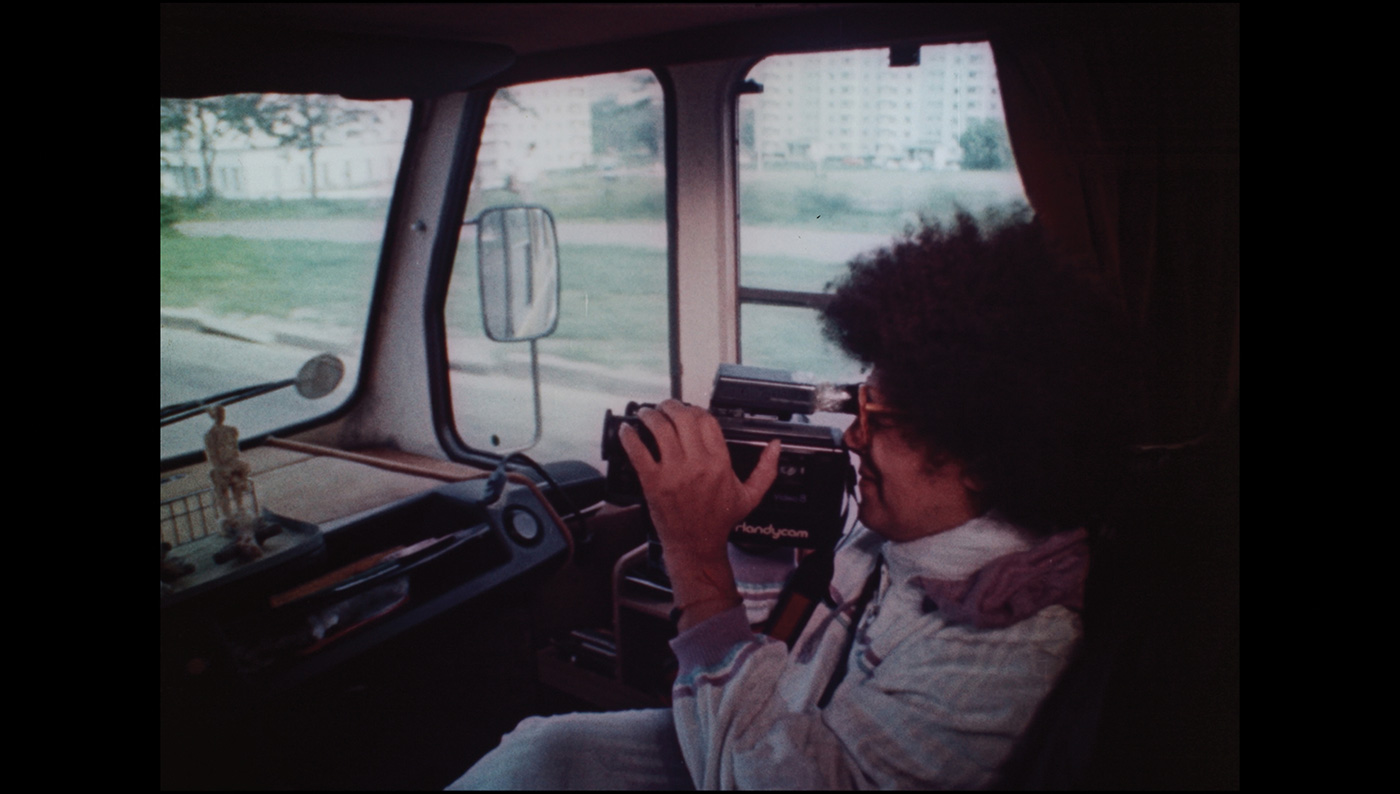
Yana Osman, Anton Khamchishkin
Pwéra úsog
Experimental doc. | mov | color and b&w | 19:50 | Afghanistan, Russia | 2025
Pwe?ra u?sog (2025). 19 min dir. Yana Osman, Anton Khamchishkin In 1945, in Paris, the Women’s International Democratic Federation (WIDF) was founded. According to historian Francisca de Haan, it was “the largest and probably the most influential international women’s organization of the post–World War II era.” Today, assessments of the organization’s legacy remain contested. Some scholars, citing reports from the FBI and the House Un-American Activities Committee, describe WIDF as a communist attempt to manipulate women. Others view it as a movement advocating for women’s rights, and researchers like Elizabeth Armstrong note WIDF’s role in anti-colonial and anti-racist struggles led by women in Asia, Africa, and Latin America. In 1987, during the Perestroika era, WIDF organized the World Congress of Women in Moscow, under the slogan: “Toward 2000 — Without Nuclear Weapons! For Peace, Equality, Development!” The congress brought together 2,800 women from 150 countries. Among them, there was the protagonist’s grandmother, an interpreter who collected words from global conversations that had no equivalents in other languages. Revisiting her notes, archival footage, and sites of official delegations, the protagonist is guided by these fragments to a question: what words can capture the present, when language itself slips away, dissolves, and borrowed slogans drown out one’s voice?
Yana Osman, Anton Khamchishkin (Afghanistan, Russia) — artists and filmmakers. Work with gaps in storytelling, filling in the unsaid and uncovering narratives suspended between real and imaginary, facts and speculation. Their films were selected at Hong Kong Film Festival, DOK Leipzig, Slamdance, Rencontres Internationales Paris/Berlin, as well as supported by CNC, Cité Internationale des Arts, Usage du Monde au 21ème siècle, Institut Français, among others.
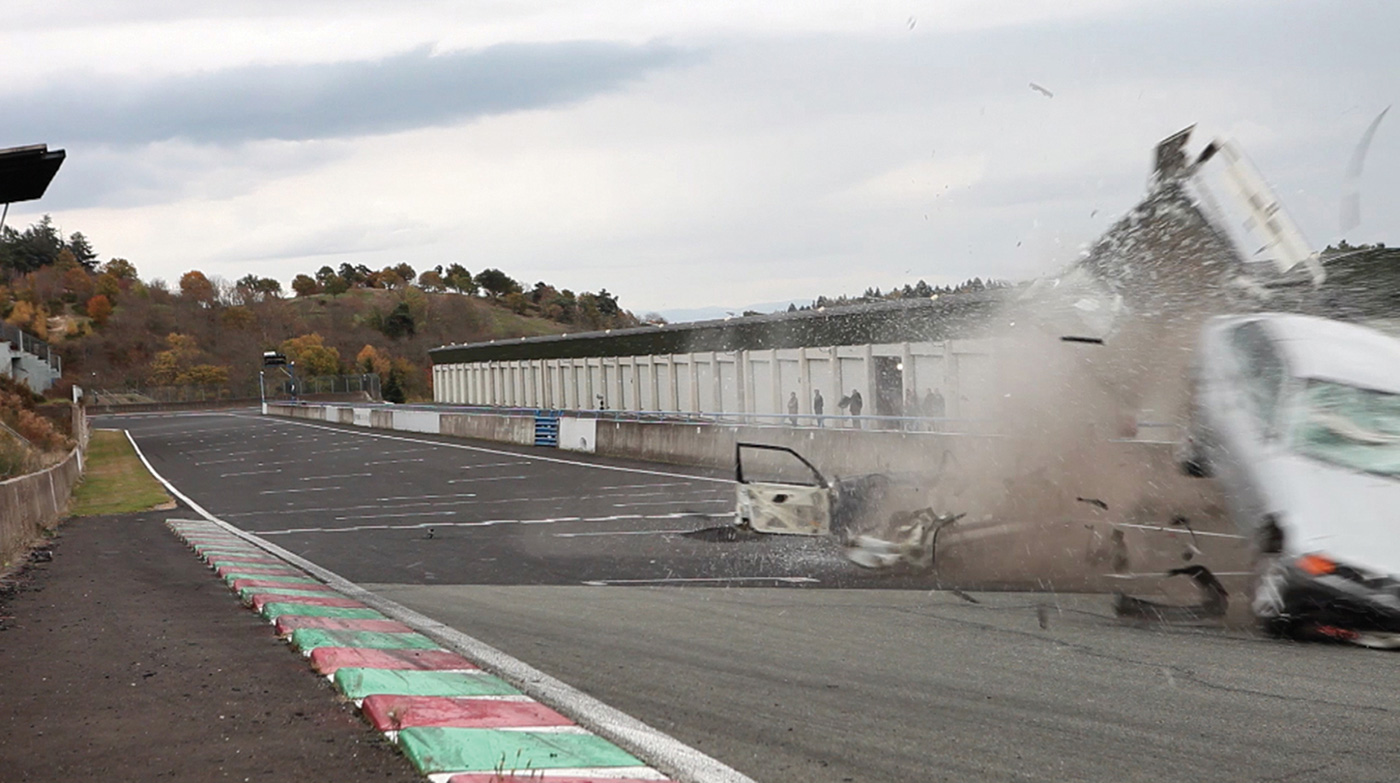
Gael Peltier
Percussion mécanique
Performance | mov | color | 2:2 | France | 2018
For Gaël Peltier, video is above all a means of recording a performance that cannot be repeated. It is an art of the instant which, as here, culminates in violent mechanical destruction. Its proximity to cinema lies in the procedures behind the actions he undertakes, willingly putting himself in danger and, like a stuntman, accepting the constraints and risks of an operation prepared with meticulous care. Beyond this technical kinship and the references that inevitably come to mind — Crash by David Cronenberg, after J. G. Ballard’s novel, for instance — everything in this work stands in opposition to cinema. There is no narrative: the focus rests on an accident, on the acceleration that leads to it, and on the brutal impact to which the performer submits himself. He places himself entirely within reality; only the driver’s protective gear and harness distinguish this deliberate crash from a fortuitous event of the kind that so often occurs on the road. This resemblance unsettles the viewer’s eye and reveals the presence of a latent desire — not only to watch, but to take part in something that is usually perceived solely as a dramatic event, frequently with fatal consequences.
Gaël Peltier develops a practice in which attitude takes precedence over the production of objects, ready-mades or films, placing his work in the lineage of artists without oeuvre. He describes himself as an “infra-conceptual artist by default,” adopting a lateral position in which a protocol applied to reality becomes the material itself. His projects involve precise forms of commitment: gaining 30 kg in New York for a role that did not exist (La Conjuration, 2010), a car crash staged as critical action (Percussion Mécanique, 2018), or interventions that subtly disturb an otherwise ordinary situation. Video records these processes not in order to produce an effect, but to render visible the conditions of their emergence within real-world circumstances. His work has been exhibited in France and abroad since 2002.
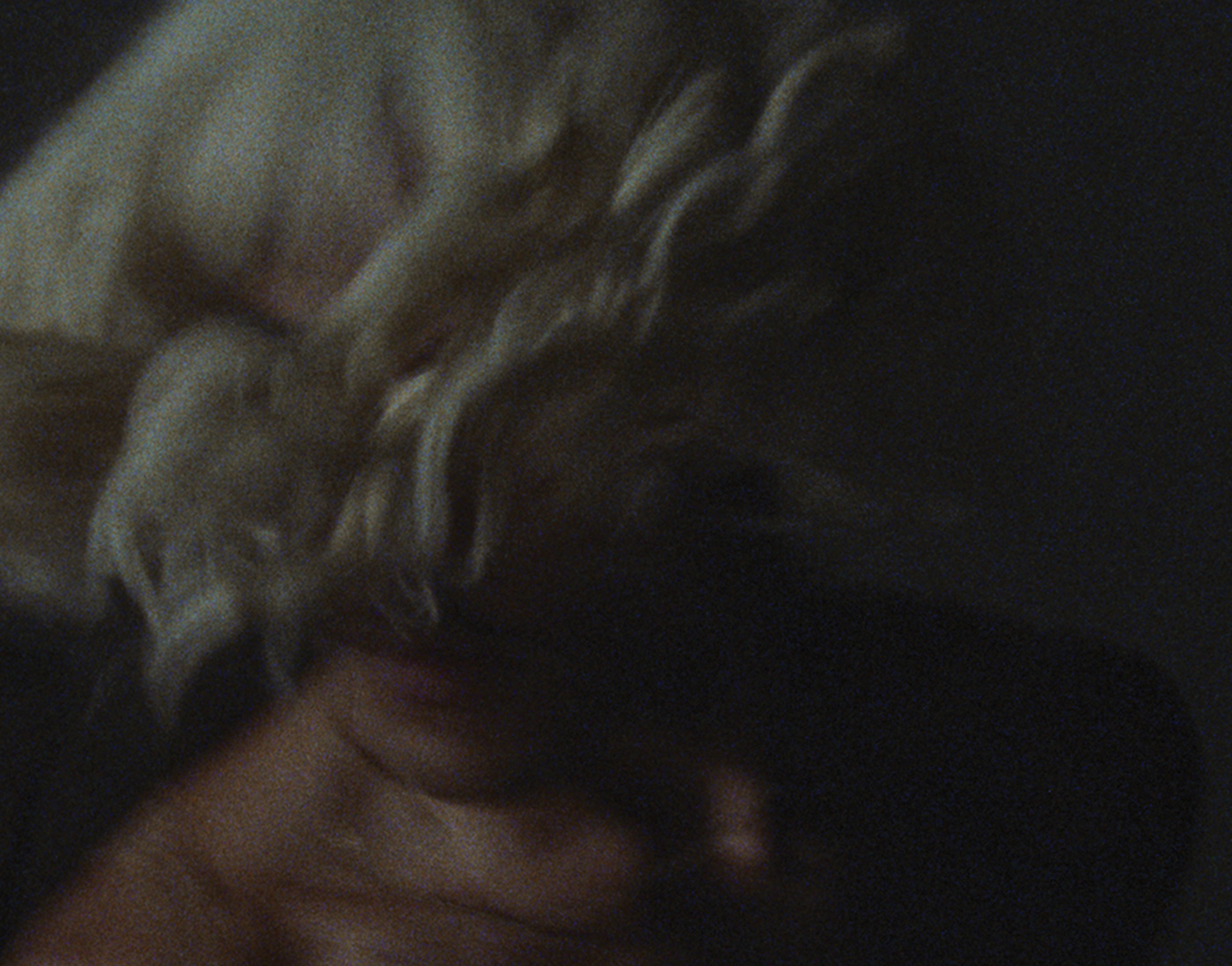
Carlos Pereira
Unruhe
Experimental film | 16mm | color | 11:50 | Portugal, Germany | 2024
"There’s been a strange epidemic lately Going amongst the folk, So that many in their madness Began dancing. Which they kept up day and night, Without interruption, Until they fell unconscious. Many have died of it."
Carlos Pereira, born in Lisbon, is studying Film Directing at the Deutsche Film- und Fernsehakademie Berlin (DFFB). His films have been screened at festivals such as Locarno, San Sebastián and Rencontres Internationales Paris/Berlin. His film Slimane (2023) won the German Film Critics Award for Best Short Film. His first feature film, Remote Islands, written during a residency at The Bergman Estate on Fårö, is currently in pre-production.
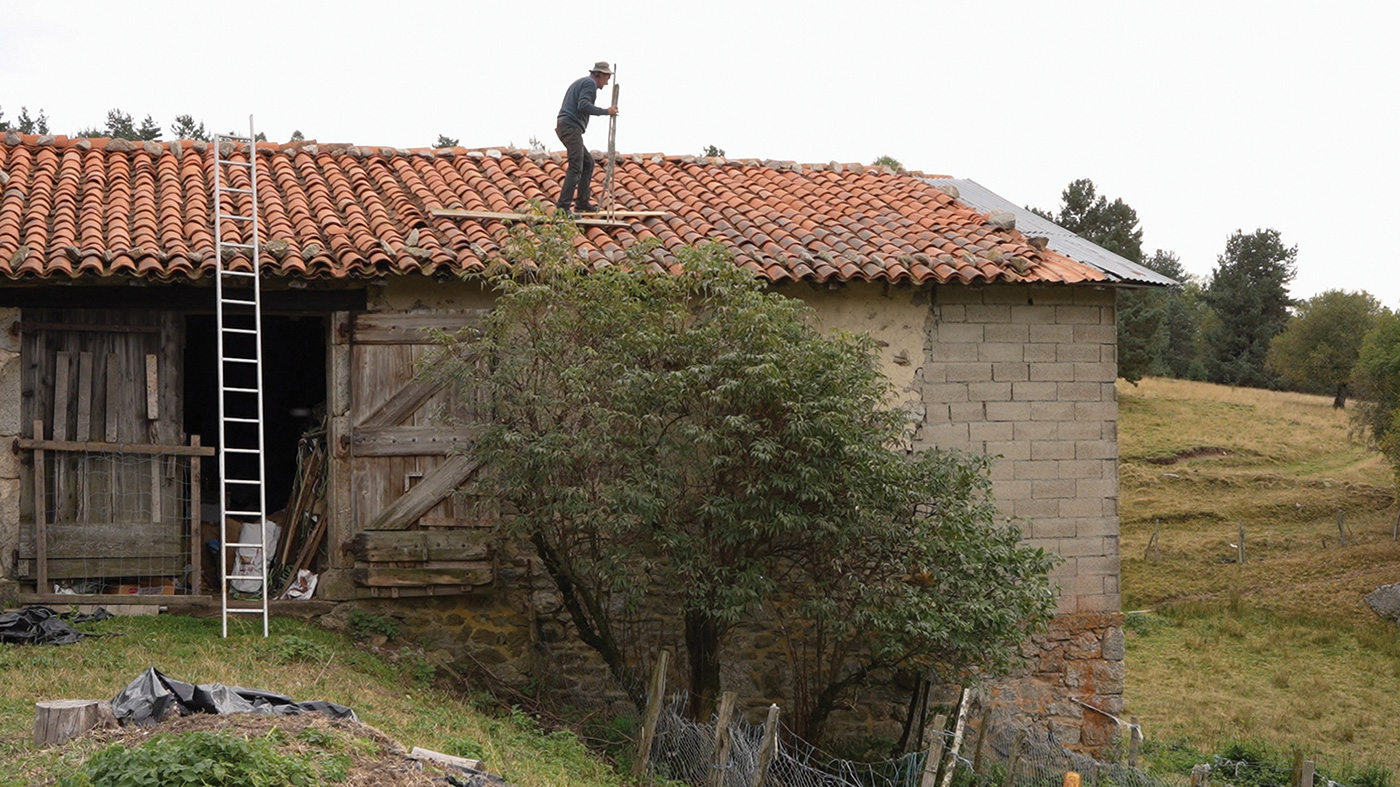
Jean-baptiste Perret
Le quotidien
Video | hdv | color | 5:11 | France | 2025
Filmed in the gorges of the Haut-Allier, Le quotidien is the portrait of a man who has chosen to live alone and apart, in a cabin at the edge of a forest. The images record his everyday gestures, tied to the essential needs of human existence: drinking, eating, washing, mending, beginning again. “Like an anthropologist-filmmaker, Jean-Baptiste Perret chooses a site — often rural — and immerses himself in it for long periods. He builds relationships with the people he meets there, filming their living spaces and their knowledge. Shot in the gorges of the Haut-Allier, Le quotidien portrays a man who has chosen to live alone, removed from human society, in a cabin at the forest’s edge. The videomaker captures his daily gestures, linked to the essential needs of human life: drinking, eating, washing, repairing, starting again. The film forms part of a broader enquiry into marginal life paths within rural contexts, in which other relationships to the living world, to territory, and to ecology are invented.” (Work Method, Guillaume Désanges and Coline Davenne)
After studying ecology, Jean-Baptiste Perret worked for several years in environmental protection within local authorities. A 2018 graduate of the École des Beaux-Arts de Lyon, he has continued to pursue his interest in rural contexts through a filmmaking practice that takes the form of films and video installations. His work is driven by the question of care, which he understands as an attentiveness to vulnerability, inseparable from the regenerative capacities of individuals. His approach is grounded in documentary enquiry and draws on methods borrowed from anthropology that challenge conventional criteria of objectivity, placing affect at the very centre of the research process. He is also inspired by microhistory, which seeks to step away from official narratives of the many in order to focus on individuals and their own ways of understanding the world. Jean-Baptiste Perret films people he encounters in their everyday situations, engaging with their life paths, their surroundings, and their skills. Through varying degrees of staging — always leaving room for improvisation — subjective accounts and fictional strategies intermingle. His work has been shown at the Institut d’art contemporain (IAC) in Villeurbanne as part of the 15th Lyon Biennale, at the Musée d’art contemporain de Lyon, at Fondation d’entreprise Ricard (Paris), at the Musée de la Chasse et de la Nature (Paris), at the Chapelle Saint-Jacques (Saint-Gaudens), at the Institut national d’histoire de l’art (Paris), at FID Marseille, at the Festival Hors-Pistes at the Centre Pompidou, at the États généraux du documentaire in Lussas, and more recently at the 66th Salon de Montrouge. Jean-Baptiste Perret is represented by Galerie Salle Principale in Paris.

Pink Twins
Firewalk
Animation | dcp | color | 9:35 | Finland | 2025
A pre-apocalyptic midnight walk takes you through a burning forest to witness a looming destruction. A fire in the forest either marks an impending doom or serves as a metaphysical gateway between realities.
Helsinki based duo Pink Twins, Juha and Vesa Vehviläinen, have worked in the fields of media art, moving image and electronic music since 1997. The boundaries of human perception, immersion and physicality are central to their works. Pink Twins implement their complex animations through parametric design and programming. Their works are performed not only in exhibitions and festival screenings but also as live performances combining music and video projections. Pink Twins have been seen on all continents, and in all kinds of venues from concert halls, festivals, theaters to churches. In recent years, Pink Twins have also made audio and video works directly online, e.g. the sound piece Infinity for Kiasma’s online art collection.
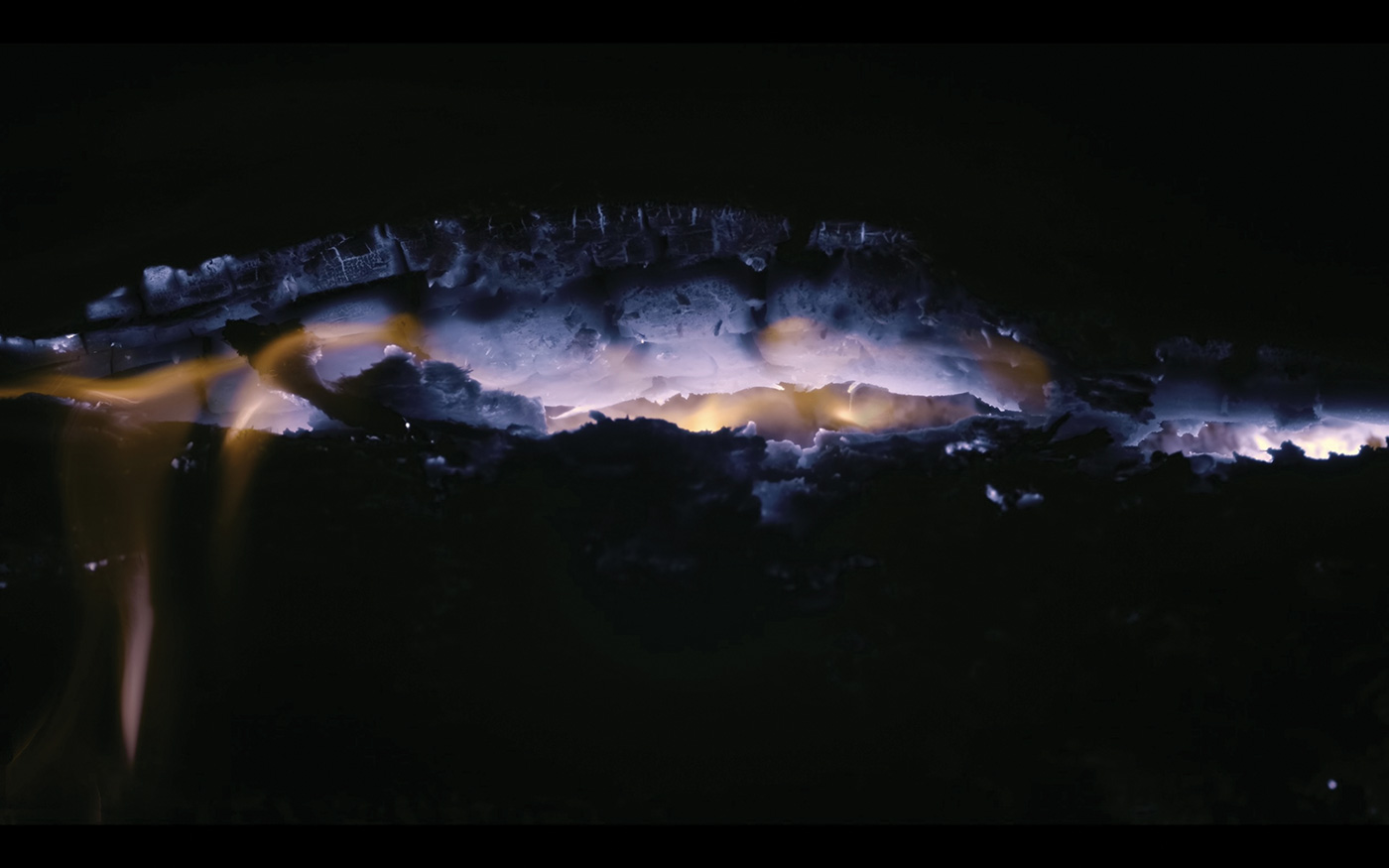
Léonard Pongo
Tales From The Source
Experimental film | 0 | color | 38:19 | Belgium, Congo (RDC) | 2024
Tales from the Source offers a gaze on the landscapes of the Democratic Republic of Congo to translate a sense of its unfathomable power, diversity and knowledge. The scenery is presented as a character acting as a living entity and inhabited by the symbolism of Congolese traditions. The visual approach borrows techniques from multispectral imaging, resulting in an otherworldly experience with surreal lights and colour. Combined with an original musical composition by Bear Bones, Lay Low, we enter into a sensory dialogue with the landscape, an intelligent, ageless being in constant transformation that challenges our perception.
Léonard Pongo (b. 1988, Liège, Belgium) is a visual artist and filmmaker who lives and works between Belgium and the Democratic Republic of Congo. Pongo's work explores the complexities of perception, and representation while challenging conventional portrayals of the DRC with a focus on traditional narratives and symbols, and their connection to the land. Initially trained as a photojournalist, Pongo's artistic journey began in 2011 when he traveled to the DRC to cover the presidential elections. This experience profoundly transformed his approach to photography, shifting from objective documentation to a more subjective and experiential mode of expression. His family and local communities challenged his initial perspective, encouraging him to develop a more nuanced and intimate portrayal of Congolese life. Pongo is renowned for his mixed-media installations that integrate textiles, photography, diverse printing techniques, and moving images. His work draws deeply from Congolese cosmologies and oral traditions, particularly embracing the concept that "not everything is visible." Using specialized techniques including full-spectrum photography that captures wavelengths beyond human vision, he reveals aspects of landscapes and experiences typically hidden from view. His long-term project "The Uncanny" (2011-2017) explores daily life in the DRC through evocative black-and-white imagery that creates a dreamlike atmosphere, while "Primordial Earth" (2017-ongoing) focuses on the land using color photography, textiles, and video installations to evoke a sense of spirituality and interconnectedness. His latest film, "Tales from the Source" (2021-2024), extends his focus on traditional narratives, focusing on the luba cultures and highlighting the intertwined nature of culture and environment. Pongo's collaborative approach involves working closely with communities across the DRC, drawing inspiration from their knowledge, stories, and traditions and creating visuals that align with the lineage of Luba traditions by creating contemporary forms connected to ancestral concepts and visions. His work has been exhibited internationally at prestigious venues including the Bozar Centre for Fine Arts in Brussels, the Tate Modern in London, the Dakar biennale in Senegal, and the Nasher Museum of Art at Duke University. In 2023, his first monograph "The Uncanny" was published by Gostbooks, and in 2025 he was selected as one of ArtReview's "Future Greats" by photographer Roger Ballen.
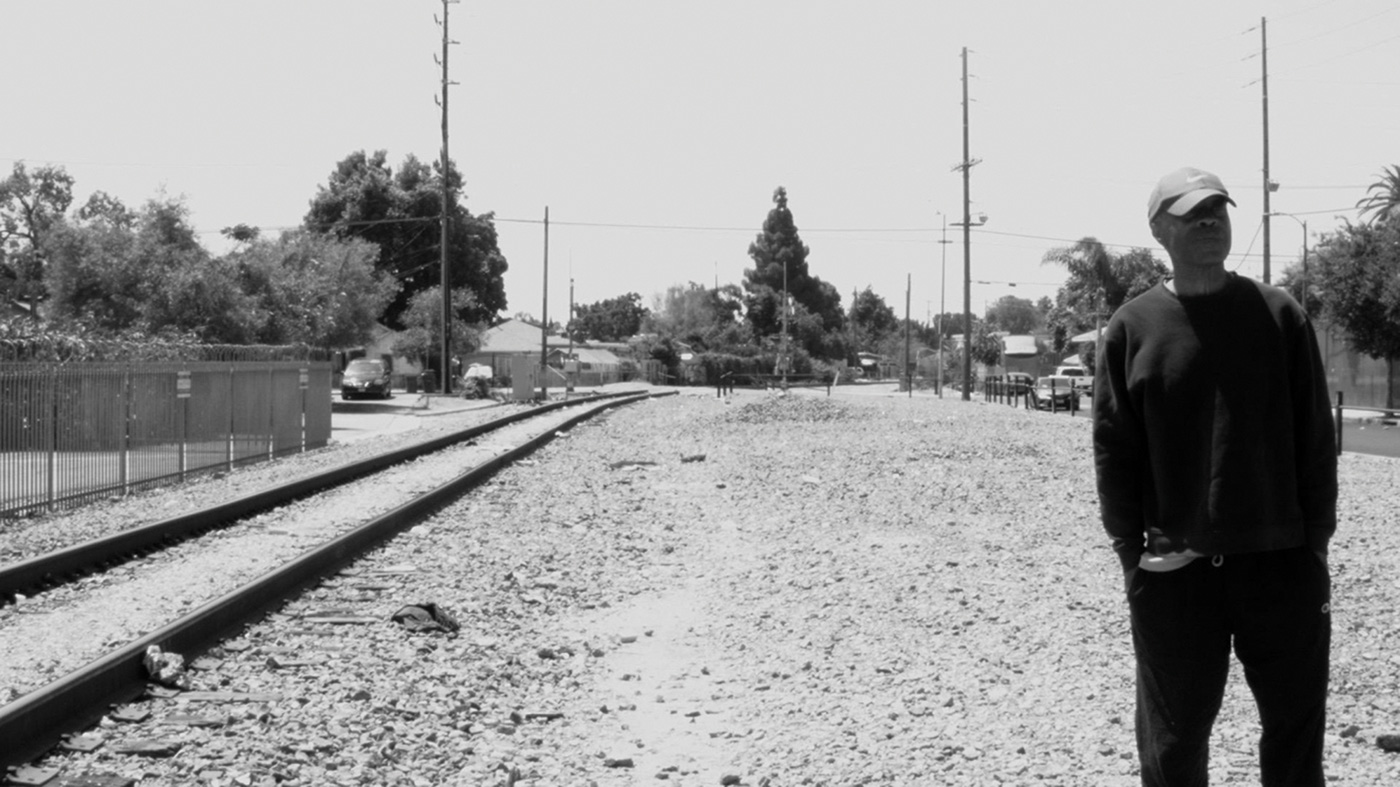
Lucia Prancha
CHARLES
Experimental doc. | hdv | black and white | 2:38 | Portugal, USA | 2025
Do you remember the scene in Killer of Sheep (1978) where the kids are playing on abandoned railroad tracks? The scene is set in the Watts neighborhood in California. Director Charles Burnett took the artist Lúcia Prancha to several filming locations from his works around Los Angeles.
Lúcia Prancha (1985, Lisboa) is an artist who lives and works in Barcelona. Lúcia graduated in Painting from FBAUL (2009, PT) and obtained her Masters in Arts from CalArts–California Institute of the Arts (2015, USA). Her work was exhibited at Pavilhão Branco, Museu da Cidade, Lisbon; 19 Crac de Montbéliard; Centro de Arte Oliva; Sesc-Pompeia, Sao Paulo; LACA – Los Angeles Contemporary Archives; Hordaland Kunstsenter, Bergen; Serralves Foundation, Porto; Galeria Dynamo, Porto; Galeria Leme, São Paulo; Berardo Museum and São Paulo Biennial. Her videos were screened at the Cinemateca Portuguesa; INTERSECCIÓN, Coruña; Curtas Vila do Conde; Rencontres Internationales Nouveau Cinéma et Art Contemporain de Paris and, Haus der Kulturen der Welt, Berlin. Currently, she is part of "El vértigo de las imágenes", XVIII Bienal Internacional de Fotografía–Fotonoviembre at TEA–Tenerife Espacio de las Artes and Centro de Fotografía Isla de Tenerife, ES. From September to November, she will be in artistic residency at the Cité Internationale des Arts in Paris.
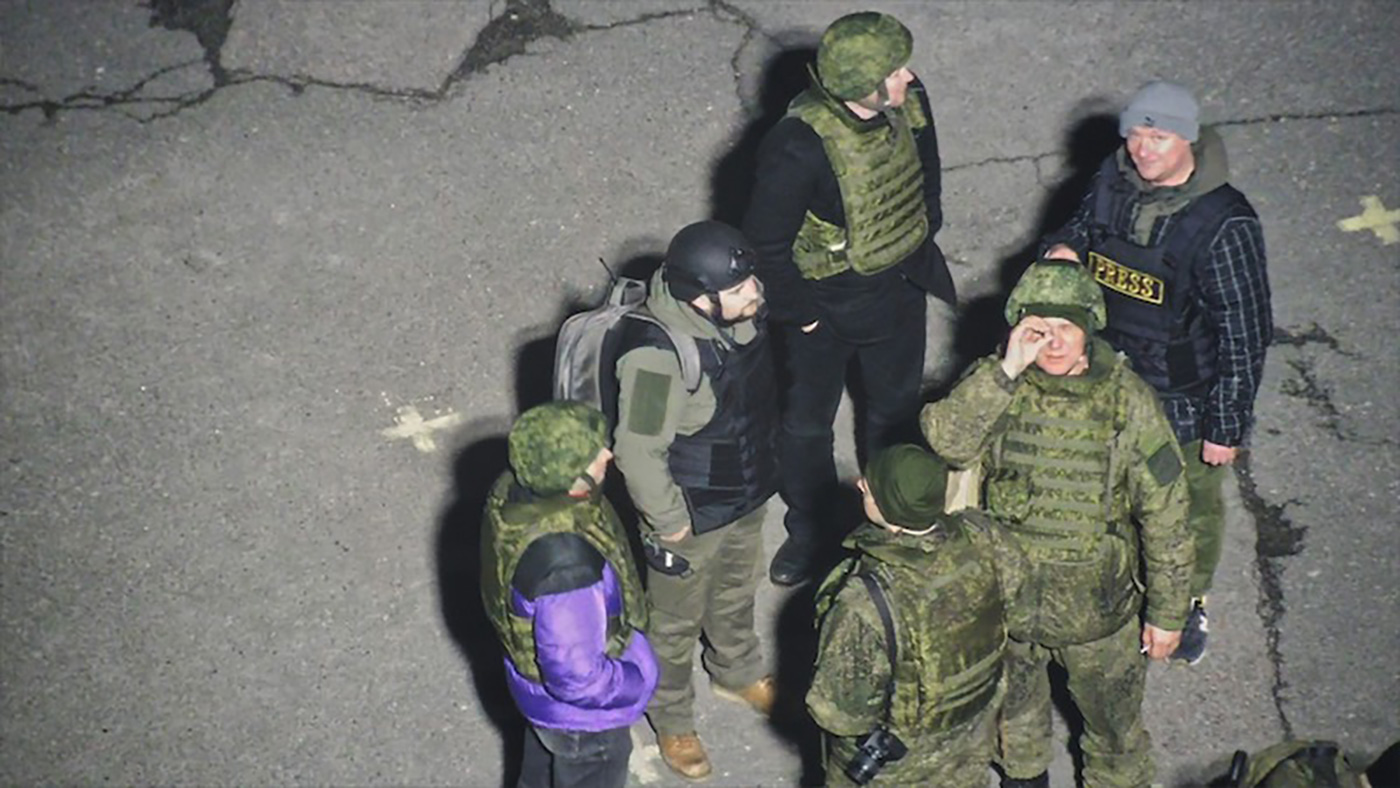
Oleksiy Radynski
Special Operation
Documentary | mp4 | color and b&w | 65:0 | Ukraine | 2025
The Chornobyl Zone - the site of the worst nuclear disaster in history - had been occupied by the Russian troops on February 24, 2022, in the very first hours of their all-out invasion of Ukraine. The Russians had turned the territory of the Chornobyl Nuclear Power Plant into a military base for their troops in an attempt to occupy the Ukrainian capital of Kyiv, located just a hundred miles away. They had captured the personnel of the nuclear plant who were forced to perform their duties without proper rest or sleep. The Russian plan was to stay in Chornobyl for just three days: this was their imagined time span for Ukraine’s downfall. Instead, the Russians were stuck at the radioactive site for five weeks, only to see their army collapse in the battle for Kyiv. Most of their illegal activities during these five weeks had been captured by the nuclear plant’s CCTV system, which the Russians had failed to prevent from filming. Special Operation is entirely based on these recordings. This film offers a unique perspective into the inner workings of the Russian military machine in Ukraine - and into one of its most grandiose failures. The CCTV cameras have recorded every aspect of Russian criminal presence at the contaminated Chornobyl Nuclear Power Plant - from the gross violations of nuclear safety to the staged visits by the Russian TV propagandists. We have obtained these unique materials - which had never been disclosed to the public before - from the Ukrainian law enforcement as part of our team’s long-term effort to document Russian war crimes in Chornobyl, and to help bring their perpetrators to justice. Each shot of this film is a piece of evidence representing a war crime of nuclear terror. With this film, we wish to make this evidence visible - and by doing so, to expose the profound, and frightening, incompetence of the Russian army.
Oleksiy Radynski is a filmmaker and writer based in Kyiv. His films experiment with documentary forms and practices of political cinema. They have been screened at film festivals and exhibitions worldwide including Berlinale, International Film Festival Rotterdam, Doclisboa, Thessaloniki IFF, Dokufest, the Institute of Contemporary Arts (London), e-flux (New York), Taipei Biennial, Docudays (Kyiv), Sheffield Doc Fest, Krakow IFF, DOK Leipzig etc. His films received multiple awards, including the Grand Prix at the Oberhausen International Short Film Festival for Chornobyl 22. Since the beginning of the full-scale Russian invasion of Ukraine, he has collaborated with The Reckoning Project.
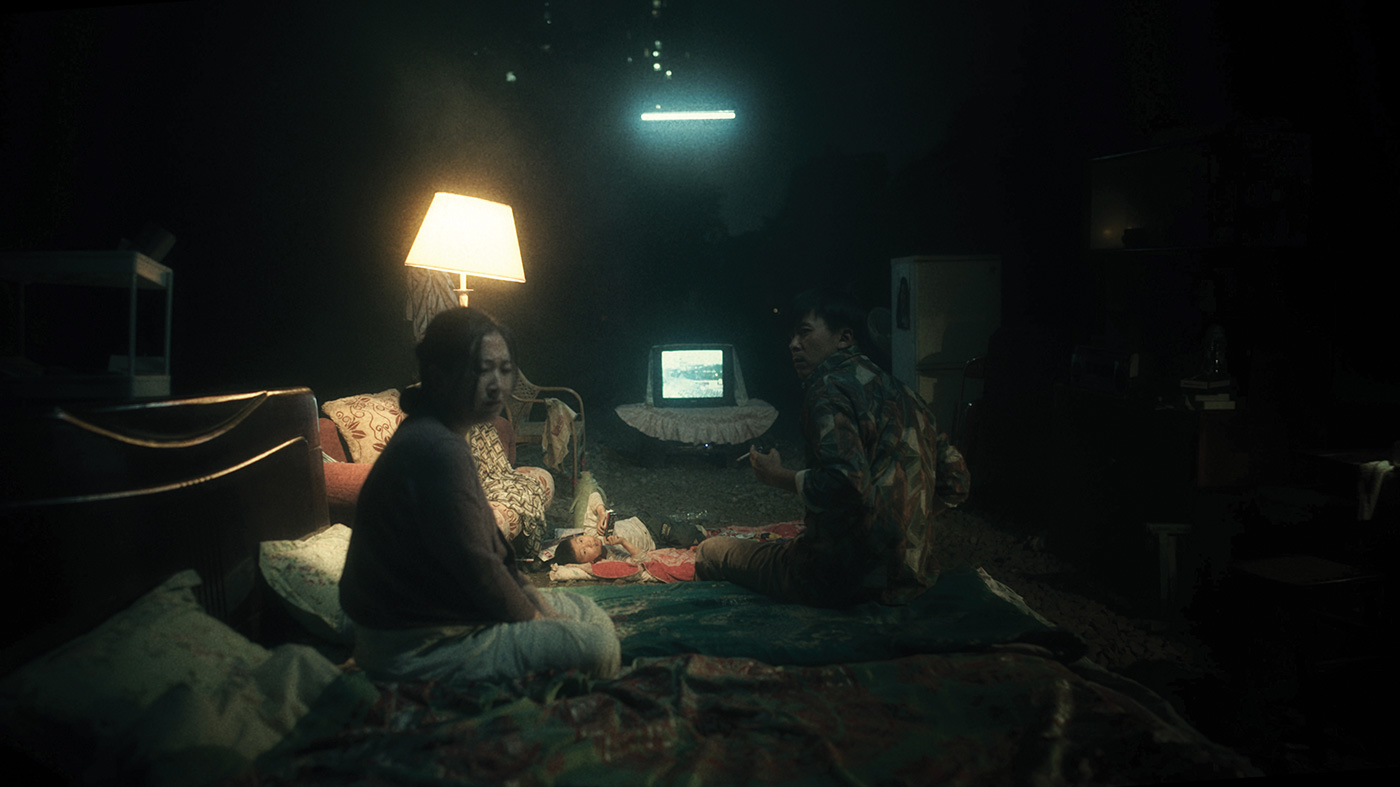
Zhu Renjie
Fare Thee Well
Fiction | mp4 | color | 25:0 | China | 2024
Under the butterfly effect triggered by the second wave of reform and opening up of China, a small family found itself caught in a continuous hurricane in life. Many years later, Yang Xiaolong received four letters from his long-unseen father. As a result, the textual clue of "country grows and family broke " unlocked the suppressed childhood memories within him...
Renjie ZHU, director and cinematographer, born in 1992, has lived in the ancient city of Anyang and the metropolis of Shenzhen due to family reasons since childhood. He currently resides in Hangzhou. He graduated from the China Academy of Art with both his bachelor's and master's degrees, and is currently pursuing a doctorate in film creation at the same institution. His work has won the New Wings Promotion Award in Golden Rooster Youth Short Film Season, and won the Qilin Outstanding short film in In Moment Film Festival, and has been selected for the Beijing International Short Film Festival and Light My Fire Youth Film Festival and so on.
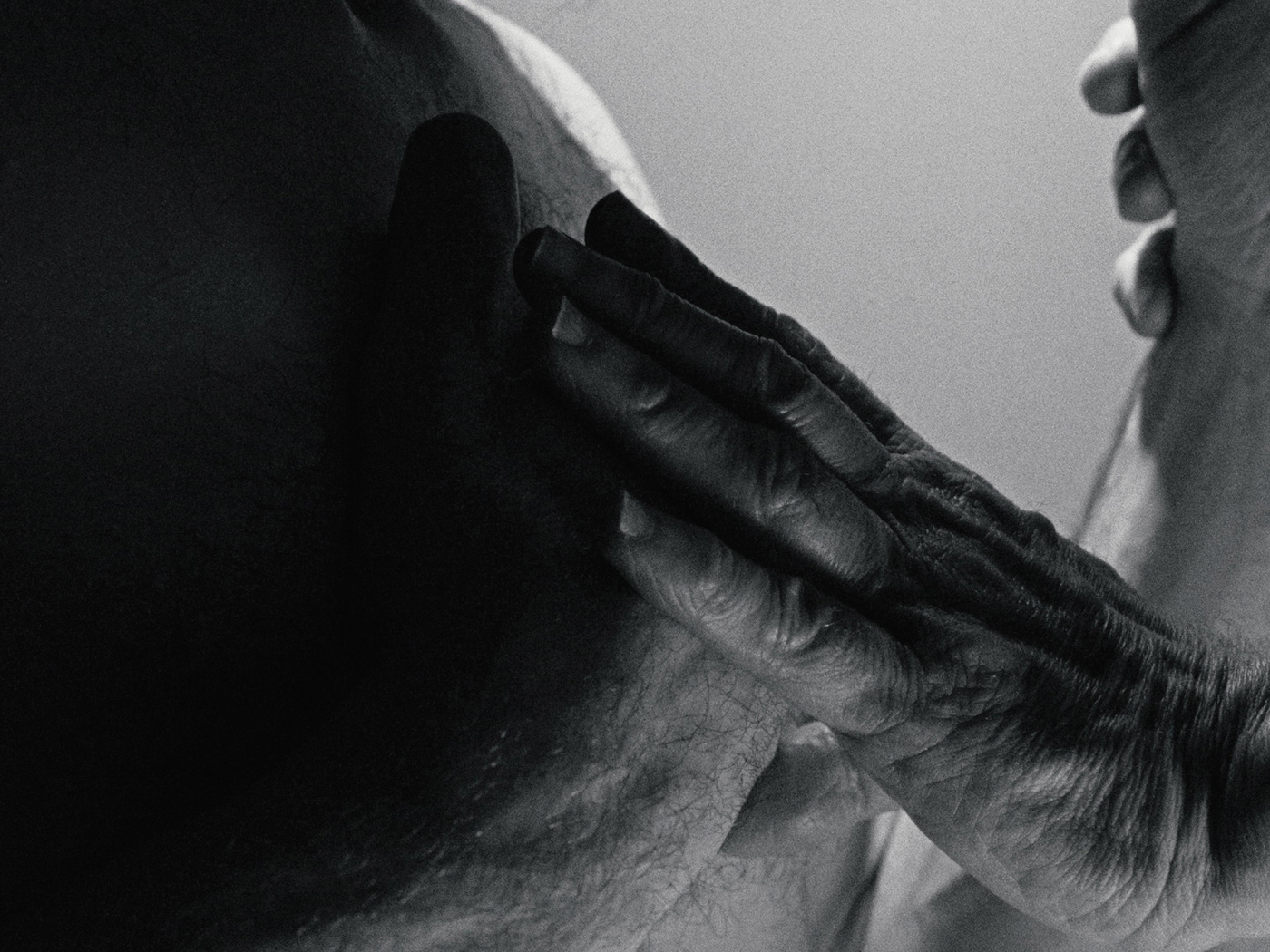
Louis Rizzo Naudi
In Here
Experimental fiction | mov | color and b&w | 8:50 | United Kingdom | 2024
“We dream of travelling through the universe… is the universe, however, not within us? We do not know the depths of our spirit. The mysterious path leads inwards. Eternity, with its worlds of past and future, is in us or nowhere. The outward world is the world of shadow; it throws its shadow into the realm of light. At present, it indeed appears so dark, lonely, formless inside; but how completely different it will seem to us when this eclipse has passed, and the body and shadow have moved away. We will enjoy more than ever, because our spirit has been deprived.” — Novalis, ‘Pollen’ (1798). Translated and adapted from the original German publication, with assistance from W. Hastie’s English translation in ‘Hymns and Thoughts on Religion’ (1888).
Louis Rizzo Naudi is a British-Maltese filmmaker. His practice explores the experience of the sublime and the constructed nature of visual perception, with his camera often focussed on natural phenomena, landscapes, and technology. He holds a B.A. in Film Studies from King’s College London, where he was awarded the Film Studies dissertation prize for his essay on the sublime in footage of the International Space Station, and an M.Sc. in Cognitive and Evolutionary Anthropology from the University of Oxford, where he researched how sublime experiences may lead to increased prosocial behaviours, such as generosity. His films have screened across Europe, including International Film Festival Rotterdam, Karlovy Vary International Film Festival, the British Film Institute, and the Tate St. Ives, and have also been used as relaxation aids in hospitals for patients undergoing medical procedures.

Clement Roussier
MYRNINEREST
Experimental doc. | hdcam | color | 14:16 | France | 2025
A woman performs Butoh alone in her bedroom; a foreigner wanders the buzzing streets of Tokyo; a poet speaks of rivers, pity and ghosts.
Clément Roussier was born in 1984. He is the author of two poetry collections (Now It Is Always Three O’Clock and Fondane), published in 2025 by Derrière la salle de bain, as well as a novel, Sullivan and the Fiery Skies of the Savannah Evenings, published in 2020 by L’École des Loisirs. In Silence and clamour, his first film, won the Grand Prize of the French Competition at FID Marseille 2023.
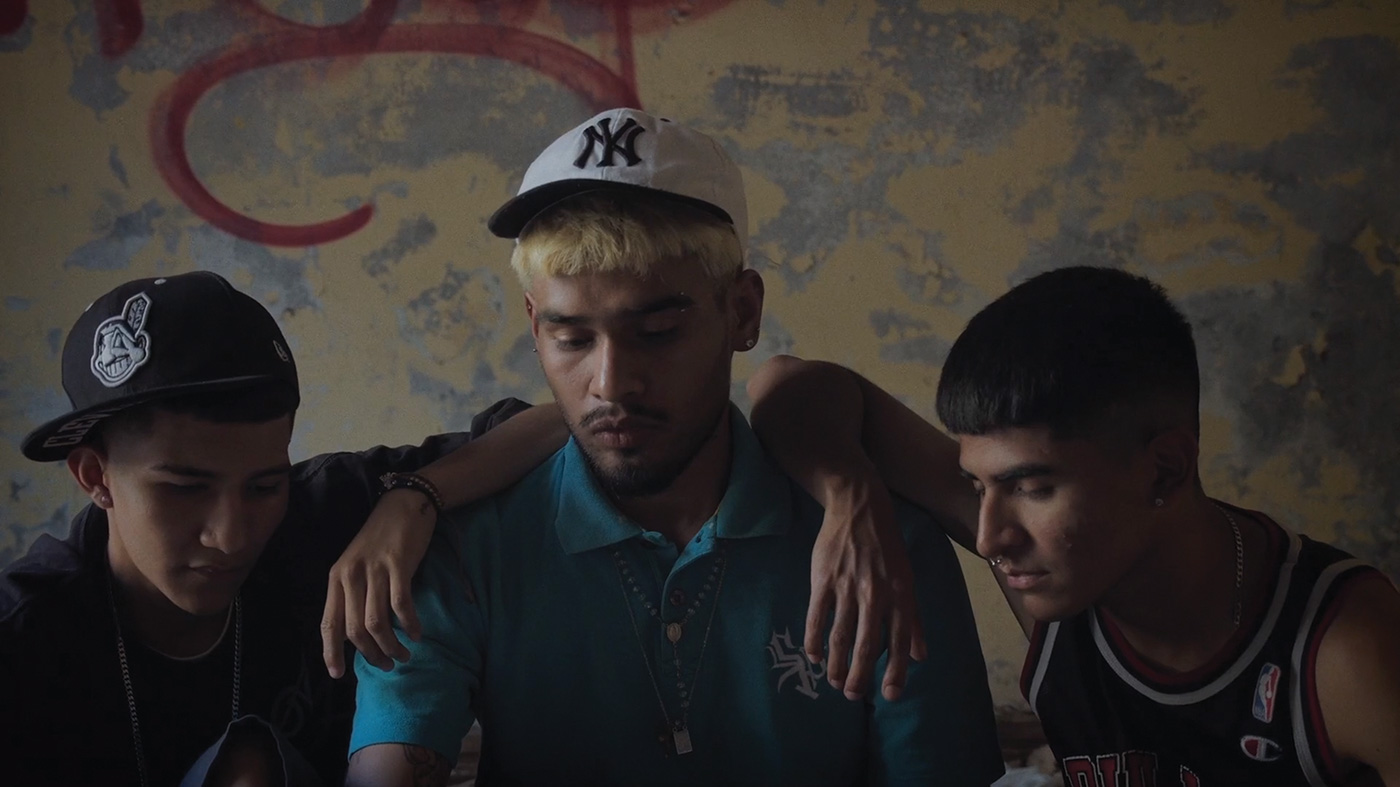
Mauricio Saenz
Niño halcon duerme entre visiones de un incendio
Experimental fiction | 4k | color | 18:0 | Mexico | 2024
Kamikaze bird that has embarked on a journey to a savage place of no return. A representation of the state of overflowing violence brought from drug trafficking through the oneiric vision of a marginal teenager recruited by a cartel.
Mauricio Sáenz (b. 1977, Matamoros, Mexico) is a visual artist with a practice spanning installation, sculpture, and video. His work explores the limits of impossibility as an active drive for transformation represented through notions as isolation, confinement, uncertainty and historical memory. He received a master’s degree from the Polytechnic University of Valencia in Spain and has displayed his work at the Museo de Arte Carrillo Gil and Foto Museo Cuatro Caminos in Mexico City, Galerie Art Virus in Frankfurt, and Jonathan Ferrara Gallery in New Orleans, as well as in video art festivals such as Proyector and MADATAC in Spain, Traverse and Instants Vidéo in France, and FIVA in Argentina, among others.
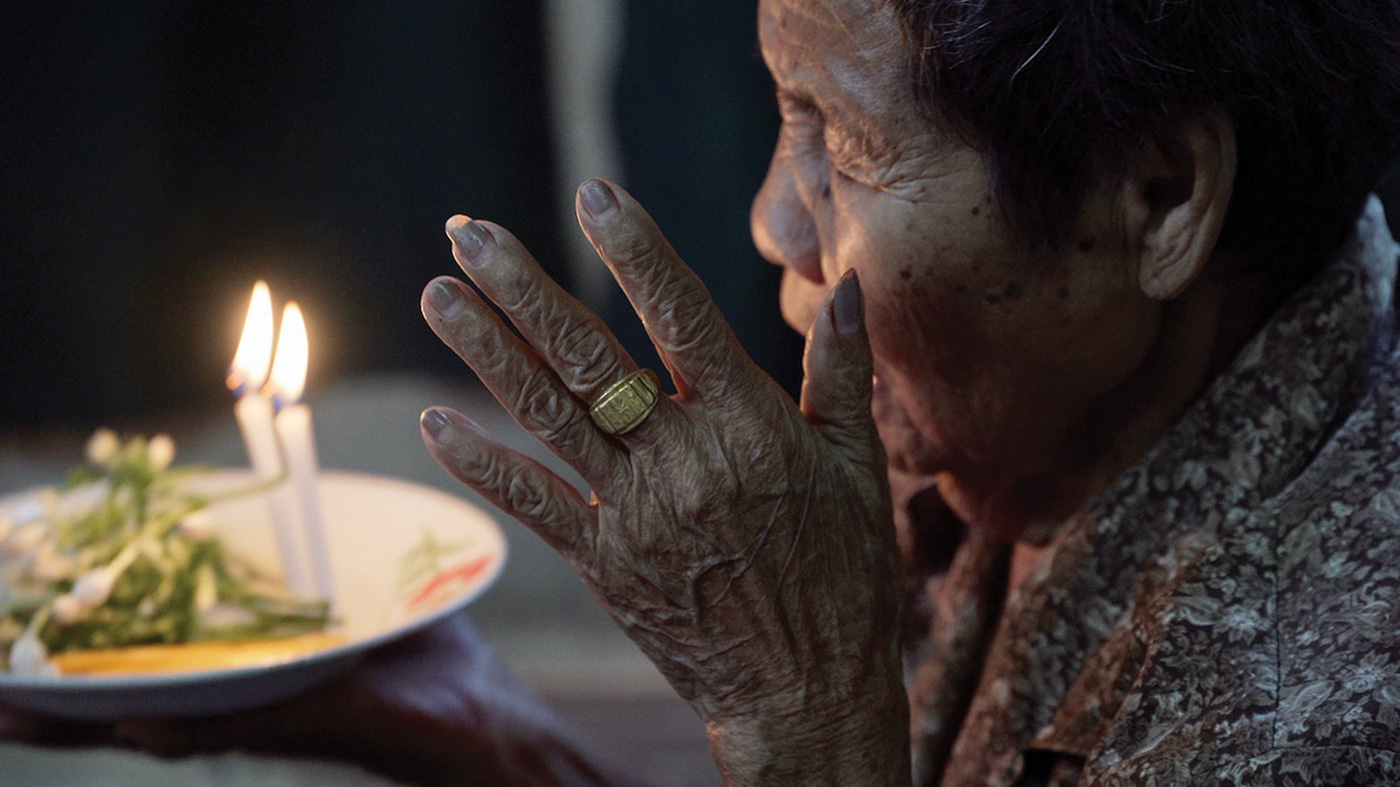
Taiki Sakpisit
The Spirit Level
Experimental video | 4k | color and b&w | 20:30 | Thailand | 2024
The Spirit Level meditates on the trauma and violence in the troubled Thailand reflected through the artist’s road trips across the northeastern region of Thailand along the Mekong River. The film begins with a downstream river that descends from Than Thong waterfall and flows into the Mekong River and explores the mythic underground cave that according to legend was a subterranean kingdom below the Mekong River where the divine Naga resides in the netherworld. At the heart of The Spirit Level is a frantic sequence of a spirit medium in the midst of possession. This epileptic episode emulates the optic feedback eliciting the trancelike revenant images as the spirited entity registers the medium’s body. Gradually the hallucinatory double images are disrupted by a freeze frame. This suspension of time occurs to commemorate the dislocated spirits of the three anti-government activists whose mutilated bodies were found in Mekong River in December 2019. The three men had been in exile since the 2014 coup d'état, until they were kidnapped by an officially sanctioned death squad. Their bodies were found handcuffed, disemboweled and stuffed with concrete blocks, wrapped in brown rice sacks and dumped into the Mekong River. It is one of countless forced disappearances and assassinations of political dissidents by the state since the 1970s and still ongoing and unresolved. The Spirit Level alludes to the undercurrents of darkness that ripple beneath the surface of problematic Thailand.
Taiki Sakpisit (???? ?????????????) is a filmmaker and visual artist based in Bangkok, renowned for his innovative approach to storytelling and his profound exploration of Thailand’s complex history. Through the lens of cinema, Sakpisit unpacks the nation's turbulent past, infusing his experimental films with a subtle yet resounding political commitment. His works delve into the underlying tensions, conflicts, and anticipations of contemporary Thailand, meticulously crafted through precise and sensorially overwhelming audio-visual assemblage. Utilizing a diverse array of sounds and images, Sakpisit creates immersive experiences that challenge conventional narratives and provoke thought. His feature-length film The Edge of Daybreak won the FIPRESCI award at the International Film Festival Rotterdam for its for its “Mysterious atmosphere and rich imagery in depicting trauma and violence, for its capacity of dealing with 40 years of political turmoil through a powerful and hypnotic cinematic journey, and for its compromise with the past in order to confront the present and the next future.” His recent works have been showcased at the 14th Gwangju Biennale, the Museum of Contemporary Art Busan, the 2024 Bangkok Art Biennale, the 14th Mercosul Biennial and Thailand Biennale.
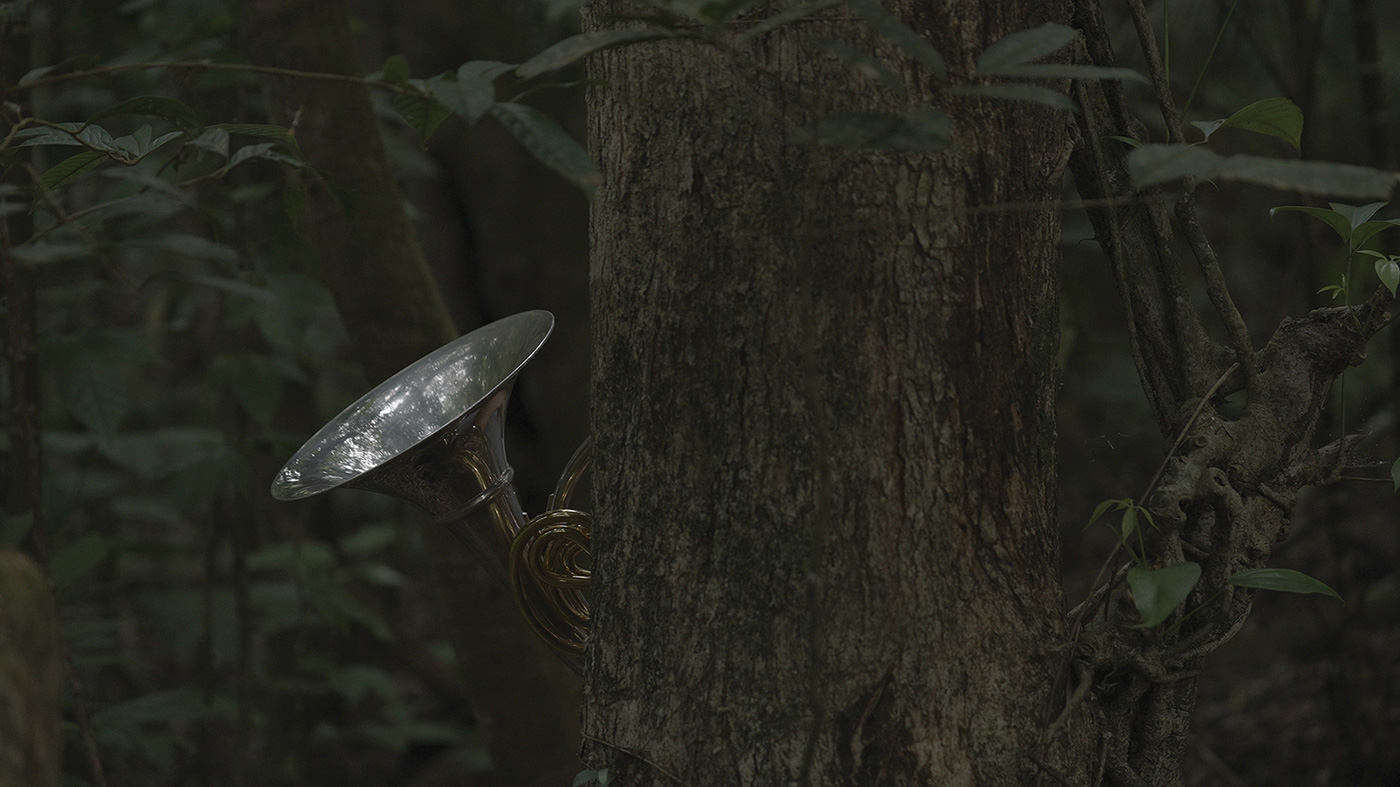
Mark Salvatus
Should the Source of Fulfillment Be Seen with Our Eyes
Experimental video | hdv | color | 16:25 | Philippines | 2024
Kung ang Makagiginhawa ay Matingnan ng Ating mga Mata (Should the Source of Fulfillment Be Seen with Our Eyes) 2024 Exploring the ethno-ecologies of Mt. Banahaw—how the surrounding more-than-human world shapes and are shaped by cultural imaginations. It weaves together Salvatus’s ongoing research on the vernacular histories of Mt. Banahaw and Lucban, convened from family archives, popular history, and mythical motifs. It looks at several trajectories of millenarian renewal that converge in Mt. Banahaw as mystical and ethno-ecological topos: from a revolution that aimed to encourage the native folk to find their own idiom of religious discernment, a history of marching bands and musicians and their place in a postcolonial regional modernity, to Salvatus’s very own practice of assembly and salvaging that situates us in this shared mystical world, animates in us a planetary political spirit.
Mark Salvatus, a Filipino artist hailing from Lucban and residing in Manila, defines his extensive artistic approach as ‘Salvage Projects.’ This concept, echoing his surname, serves as a framework for his diverse investigations into the remnants of urban politics, the layered narratives of national history, and the ceaseless motion of contemporary life. Working across various disciplines—from objects and photography to video, installations, and participatory art—Salvatus crafts direct and indirect engagements that illuminate the multifaceted outcomes of energies, meanings, and experiences.
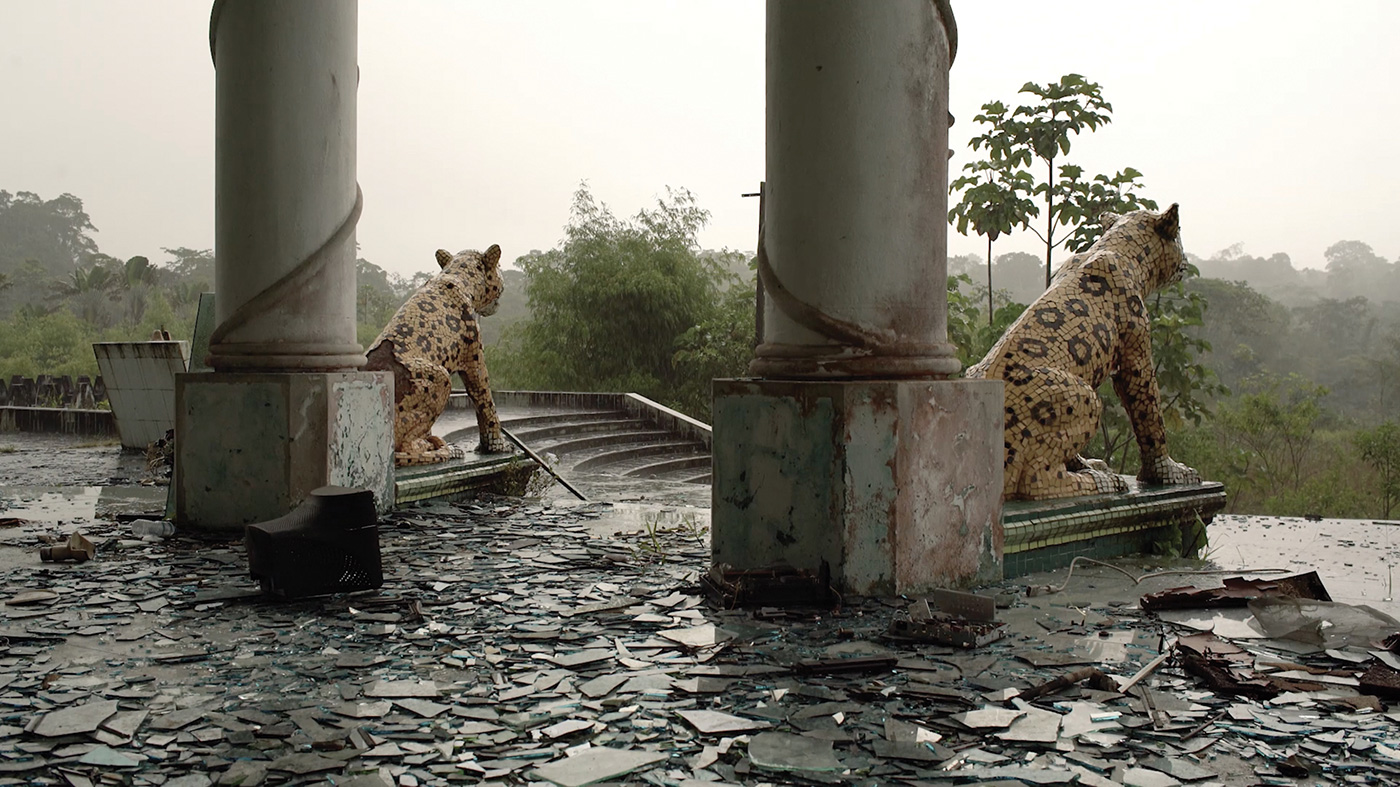
Susannah Sayler, Edward Morris
The Amazon is Elsewhere
Experimental film | 4k | color and b&w | 12:0 | USA | 2025
Amazon is Elsewhere is a short film that mediates on the unknowability and power of the Amazon for those who do not live within it. For many, the Amazon symbolizes “the lungs of the earth” or “nature” itself. For the indigenous people of the region, many of whom have no separate word for jungle or forest, it is simply home. The film centers around a building on the edge of the jungle: a mélange of architectural styles where trees break through the concrete floors; plants grow in the faux Corinthian columns; and jaguars made from ceramic tiles guard the entrance. AI-generated images express forces at play in both the building and the jungle that are difficult to parse as being malevolent or redemptive. The film is part of a body of work that considers how to represent the Amazon in light of its multiplicity of refracted meanings.
Susannah Sayler and Edward Morris (Sayler/Morris) work with video, photography and installation to examine our changing notions of nature, culture, and ecology. Their work is often place-based and focused on historical research. They have been awarded numerous fellowships including the Guggenheim Fellowship (2023) New York Artist Fellowship (2016), the Smithsonian Artist Research Fellowship (2014), the Center for Art and Environment Research Fellowship (2013), and the Loeb Fellowship at Harvard Graduate School of Design (2008). Their work has been exhibited broadly in the U.S. and internationally, including at the Massachusetts Museum of Contemporary Art, the Kunsthal in Rotterdam, the North Carolina Museum of Art, the Belvedere Museum, and the Southeast Center for Contemporary Art. Sayler currently teaches in the Film and Media Arts Department at Syracuse University, while Morris is Executive Director of Marble House Project. Their archives are collected by the Nevada Museum of Art / Reno, Center for Art and Environment. In 2006, Sayler/Morris co-founded The Canary Project, a studio that produces visual media and artworks that deepen public understanding of climate change. In 2021, they founded Toolshed, a platform for connecting ecological thought and action.
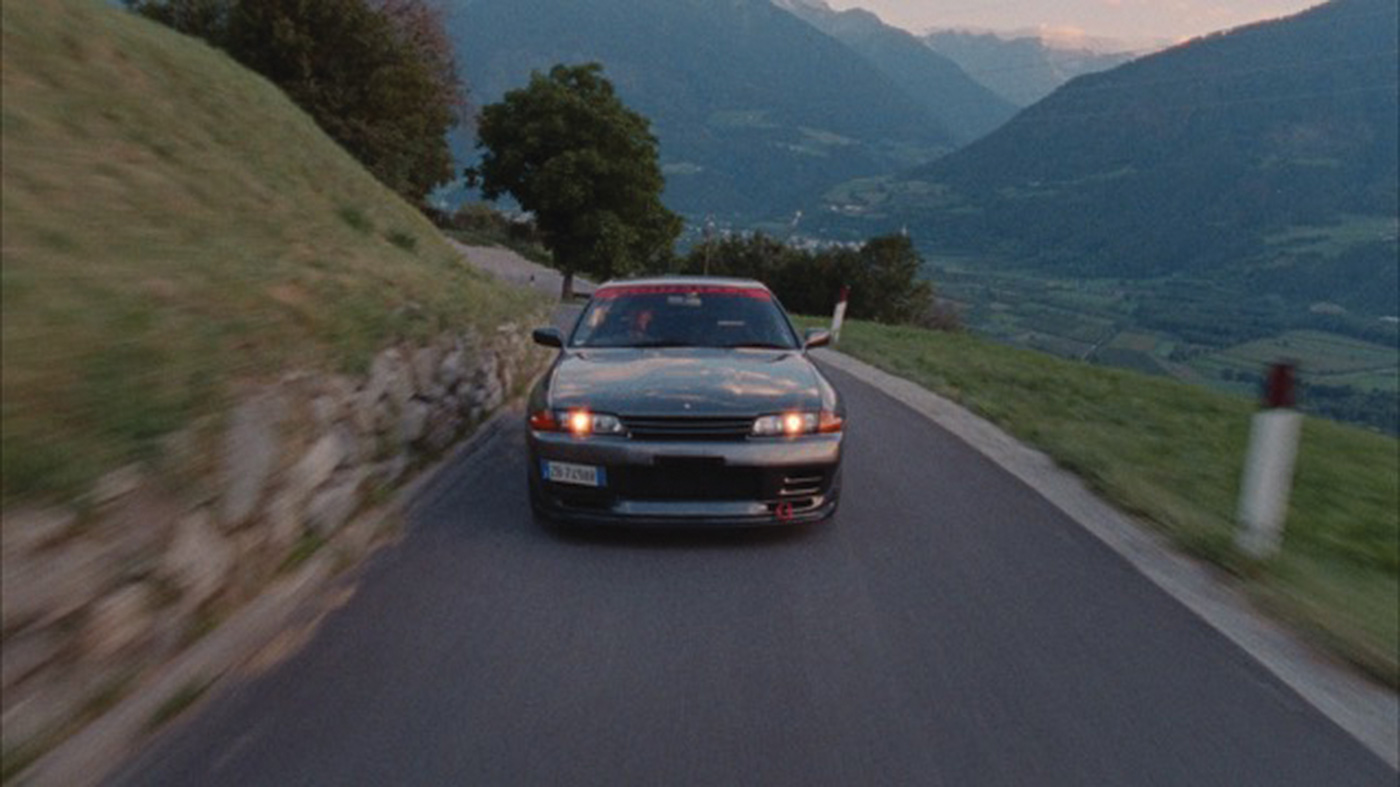
Kevin Sepp
GOODBYE REGINA
Experimental doc. | 16mm | | 8:48 | Germany | 2025
The Italian Alpine region of South Tyrol is not known for its tuning scene, but it does exist. A small group of young men have found each other to express their love of their home in their own way. Their Japanese sports cars glide oddly through historic villages, along the Alpine slopes and through breathtaking nature. GOODBYE REGINA is a farewell letter from the director to his grandmother, who grew up in these mountains. It explores the connection between the old and the new, without juxtaposing the two. In a landscape where seemingly nothing changes, the machines seem to be part of the creatures that emerge from this nature. The result is some kind of nature documentary, a collection of impressions away from the tourist postcard images.
Kevin Sepp is a director and editor based in Berlin. Coming from a humanities background, he is a self-taught filmmaker whose interest in short, visually rich storytelling led him to work in commercial film. Alongside commissioned projects, he continues to explore new possibilities through independent work. Collaborations with musicians and other artists strongly influence his sense of sound on screen and shape the atmosphere of his work. His films have been featured at festivals such as the Berlin Commercial and Berlin Music Video Awards, as well as on platforms like Directors’ Library, Sleek Magazine and Crack Magazine.